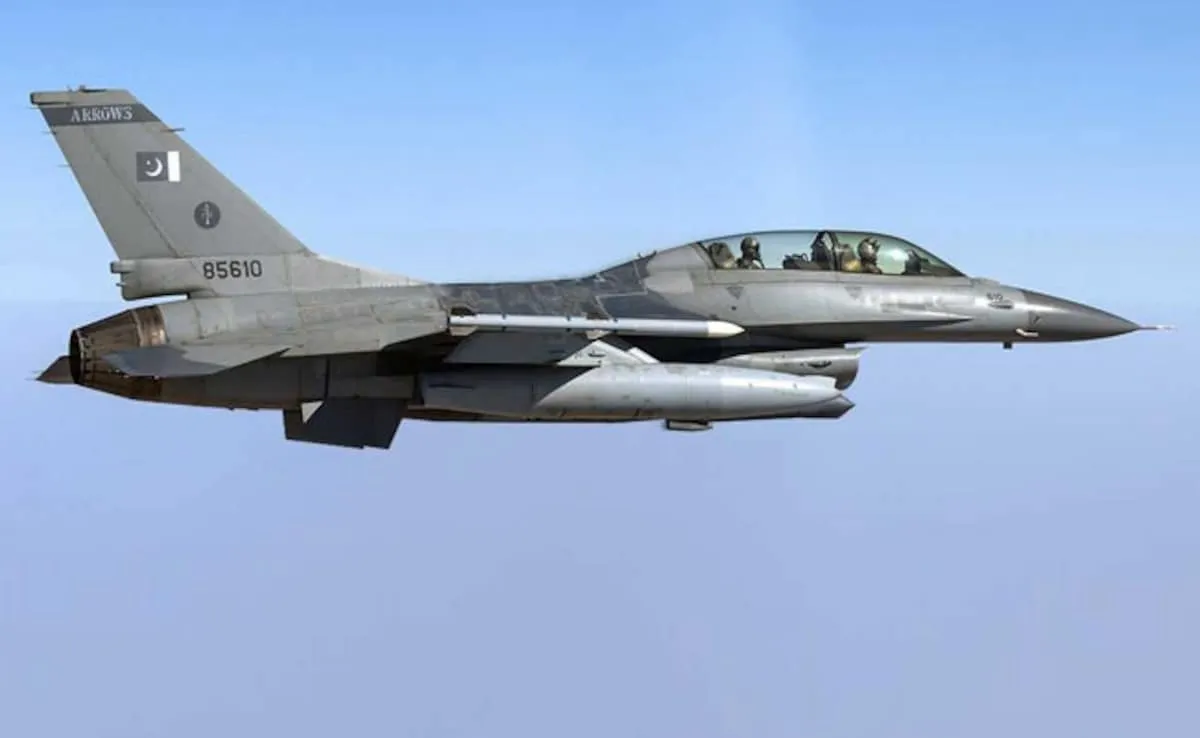
An F-16 supersonic fighter jet belonging to the Pakistan Air Force was shot down in the evening by an Indian surface-to-air missile defence system, according to sources cited by NDTV. This significant event unfolds amid Pakistan's unsuccessful attempt to strike Jammu with drones and missiles. The F-16 jet had taken off from the Sargodha air base, a crucial air force installation in Pakistan.
Sources indicate that the Indian Surface-to-Air Missile (SAM) successfully intercepted the fighter jet near the Sargodha air base. The F-16 has been a cornerstone of the Pakistani air force, alongside its fleet of Chinese and French fighter jets. Sargodha, located in the Punjab province, is one of Pakistan's most heavily fortified air bases, positioned approximately 270 km from the international border.
This incident marks a notable escalation in hostilities between India and Pakistan, coming in the wake of Pakistan's recent attempts to target Jammu with drones and missiles. A blackout has been enforced in several regions of Rajasthan along the international border, a precautionary measure amidst rising tensions.
The F-16 fighter jets were delivered to Pakistan in the late 1980s and have since undergone multiple upgrades. They were notably utilized by the Pakistan Air Force following India's Balakot air strikes in 2019, which were a response to the Pulwama attack. During that conflict, an Indian MiG-21, piloted by Wing Commander Abhinandan, engaged and shot down an F-16, marking the first aerial dogfight between the two nations in over 45 years since the 1971 war. This latest development represents a significant escalation of tensions, as hostilities between India and Pakistan have not reached such a scale since 1971.
As the situation intensifies, multiple areas in Jammu, including RS Pura, Arnia, Samba, and Hiranagar, are experiencing heavy artillery shelling. The strategic town of Pathankot in Punjab, located merely 30 kilometers from the international border, has also been subjected to intense artillery fire from Pakistan. This area is vital for India, serving as a critical entry point towards Jammu.
In response to the escalating threats, sirens have been activated in Chandigarh, prompting authorities to enforce a blackout and advising residents to stay indoors. A similar blackout has been imposed in the neighboring district of Mohali.
India has effectively intercepted multiple Pakistani drones, activating its air defense systems along the border. The Integrated Defence Staff (IDS) reported that Pakistan had targeted military installations in Jammu, Pathankot, and Udhampur using missiles and drones. Fortunately, there were no reported losses, as the Indian Armed Forces neutralized the threat using both kinetic and non-kinetic means.
Last night, Pakistan made attempts to strike various military targets across several locations, including Awantipura, Srinagar, Jammu, Pathankot, Amritsar, and more. India successfully thwarted these attacks using its Unmanned Aircraft System Grid (UAS Grid) and advanced air defense systems. The potent S-400 missile defence system was employed to intercept the incoming missiles, confirming India's robust defensive capabilities.
Debris from these attacks has been recovered from numerous sites, further substantiating India's claims of Pakistani aggression. In a decisive counteraction, India also neutralized a key air defense site in Lahore, demonstrating its readiness to respond to threats. According to sources, the Indian Air Force utilized the S-400 system on moving targets and subsequently deployed HARPY drones to disable Pakistani air defense radars.
This series of events underscores the escalating tensions between India and Pakistan, highlighting the importance of vigilance and preparedness in the region.